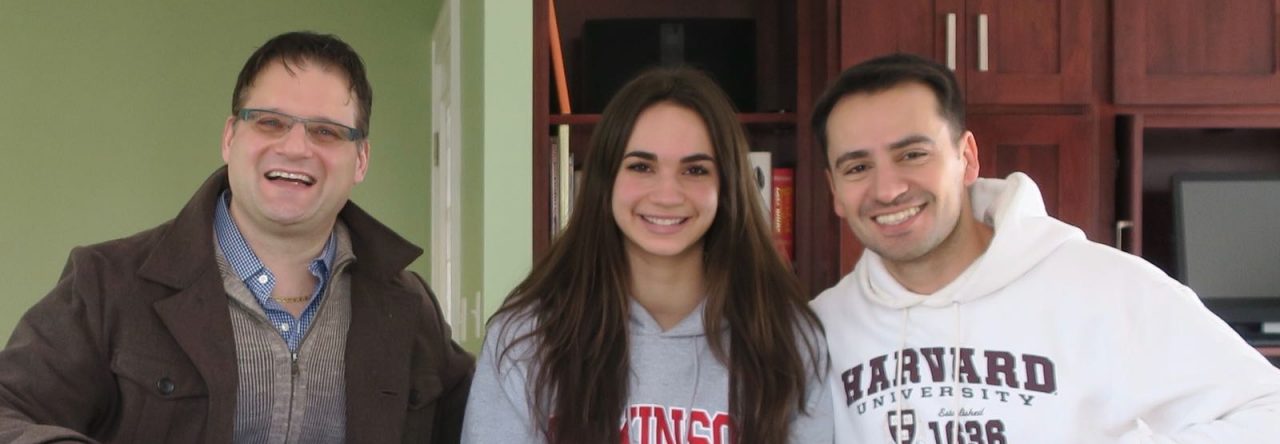As mentioned on my Home-page I held a lot of different interviews with people that are working all over campus. I asked the same questions to everyone and my goal was to get an overall impression of Dickinson College.
These were the questions I asked:
1.) Where are you originally from?
2.) How many years did you live in your country of origin?
3.) What brought you to America? (if relevant for the person)
4.) Directly to Dickinson?
5.) Why now at Dickinson? (If necessary)
6.) What do you name as the most important quality of Dickinson college?
7.) How would you define the American liberal arts experience as it exists in the United States?
8.) What are positive and negative aspects of a college of liberal arts?
9.) What are the many aspects of the liberal arts that I will find on the Dickinson campus that I won’t find elsewhere (at other non-liberal arts colleges, but also at other liberal arts colleges)?
10.) What courses do you teach?
11.) What do you like most about teaching?
12.) What was the funniest thing that ever happened during your class?
13.) What is the type of student that would fit most in this college?
14.) What would you like your students to take with them once they finish their degree here?
15.) If there were one thing you could change about Dickinson what would it be?
I interviewed 10 people that work at Dickinson and here is a summary of the results and of my impressions:
The answers all pretty similar especially when it comes to the values of the Dickinson they all agree on the fact that the college offers the students the opportunity to explore new things and to do research on topics that they didn’t know they were interested in. A majority also pointed out that the small sizes of the classes brings a lot of advantages. The global concern and the sustainability were also considered as unique and special about Dickinson College. One thing that
All the interviews taught me a lot about what it means to go to a college of liberal arts but also they made me think about myself and who I want to be. There were two interviews that particularly touched me:
Interview with Professor Kamaal Haque (Associate Professor of German)
Thanks to my talk with Professor Haque I realized that when you learn a new language it isn’t just about speaking but also about how the people live that speak that language. To explore their culture and habits and the geographical conditions is a very important aspect in order to really connect with the new language you’re learning.
As an American girl who lives in Switzerland it is a very special experience to come to the US. I discovered that even though I am familiar with the language there is so much that I had to learn in order to fit in because I was faced to cultural differences and this is what made me a foreign person even though I am citizen and that I can speak the language.
Interview with Vincent Stephens (Contributing Faculty in Music; Director, Popel Shaw Center):
Talking about ethnicity, racism and discrimination is very complicated and risky because misunderstandings are very common and happen more often than we think. But still it is important to consider the fact that we all have a country where we live and also we all have our countries of origin. There are a lot of people who encounter issues with culture differences and don’t know how to deal with them.
Here is a brief summary of what I discussed with Vincent:
If someone asks you where you are coming from it is easy to give a respond if you were born in the same country as your parents and when you lived your whole life at the same place. To identify yourself to a country and therefore to the culture can be very challenging when you are for example in a family where the parents have different nationalities. But even if you don’t know the answer for yourself you are always being judged from the outside. Because of your skin color, your physical appearance, your behavior and other factors people tend to assign you to a certain culture or country. But the factors people regard do say whether they belong to a nation or not is different form person to person.
Vincent told me about the different clubs that are organized at Dickinson that have the purpose to connect people that have the same origin but that are also open for people that are interested in discovering other cultures. I truly believe that this helps, especially young people, to develop an identity and also to give them they opportunity to be who they truly are without having the feeling that they are being judged from others who don’t understand what they feel and what their struggles are.
